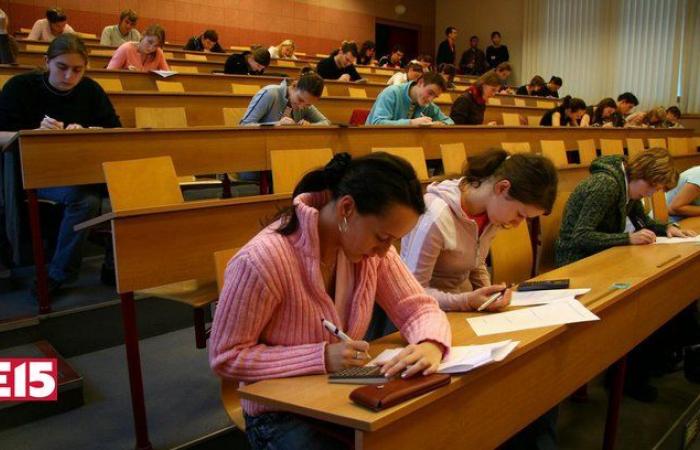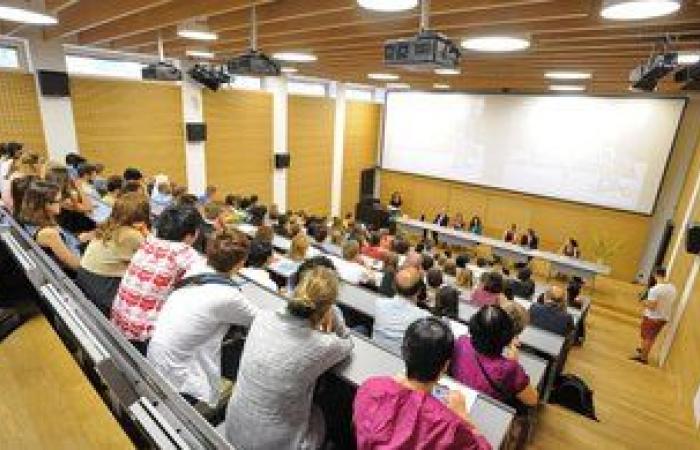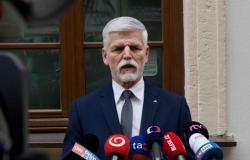Universities are mainly looking for savings in heating costs. “This is mainly about reducing the minimum temperatures for heating classrooms and offices, and a more significant reduction of temperatures in corridors and communication areas,” says Charles University spokesman Václav Hájek. At the same time, the school will start repairing the heating systems in its buildings to make them more economical and work optimally. It will also change the light fixtures and introduce an energy-saving mode at night and on weekends. It is calculated by reducing the consumption of hot water.
All measures introduced by Charles University also apply to its dormitories and canteens. “We appeal to students and employees that we will repeatedly remind them of the necessity of energy-saving behavior,” says Hájek.
VŠE wants to save up to 25 percent of energy
The University of Economics’ contract for gas has expired and, according to the new one, it must buy from October at disadvantageous spot prices. The school is changing the organization of teaching to make more efficient use of the premises, and is limiting the hours of operation on weekends, evenings and Fridays. In this way, they are trying to achieve savings in the order of at least 25 percent of consumption compared to previous years in the most energy-demanding spaces.
Masaryk University also does not have the energy prices for next year decided, until this year it always bought energy on the exchange for a year in advance. “Possibilities for purchasing energy for the next calendar year are currently being resolved, while we would like to use capped prices for the public sector,” explains school spokesperson Radim Sajbot.
According to the school’s internal calculations, lowering the heating temperature by one degree saves roughly six percent of costs, but this does not apply linearly to further lowering the temperature. “Therefore, as part of the university’s economic operation policy, we decided not to overheat and to save resources and optimize costs. We heat common spaces, such as offices and classrooms, one to two degrees less, i.e. to 21 degrees Celsius,” says Sajbot. Other measures concern the limitation of cooling, hot water or recommendations for ventilation and lighting.
UK is preparing a plan for hybrid teaching, the buildings would only be tempered
From the beginning of classes in October to December, the costs of Charles University will increase by about eighty million compared to the previous year, from October to March the increase can be up to 210 million. In case of extremely low temperatures, the school is also prepared for other measures, which include hybrid teaching. The plan for the hybrid academic year 2022/2023 is currently being prepared.
According to him, when the government declares an energy emergency, the school can consider partially transferring teaching online. The rooms would then be heated to the recommended tempering temperature, i.e. just enough so that the water does not freeze in them and the pipes do not burst. “However, the management’s priority remains the preservation of face-to-face teaching as much as possible,” emphasizes spokesperson Hájek.
Other universities also agree with him. “Currently, we have no plans for hybrid or online teaching. We believe that we will be able to handle the situation even under deteriorated conditions and will offer students a full range of education. However, it will depend on the further development of energy prices and the amount of the budget for next year,” says Koukalová from VŠE.
Expensive energy and price capping:
Expensive energy and price capping • VIDEO Videohub
Closing the school will not save much energy, they know after the experience of the pandemic at Masaryk University. During the lockdown, the school only saved about ten percent on energy, so it prefers to choose other cost-saving measures. “The primary mission of universities is to provide education to students, and our priority is definitely to maintain a full-fledged face-to-face form of study,” adds spokesperson Radim Sajbot. In extreme cases, however, they are willing to consider hybrid or online teaching.
It used to be cheaper to heat at full capacity than to insulate
At the same time, schools are calculating how they can reduce operating costs in the future. With cheap energy in the last ten to fifteen years, some energy savings were not economically effective, says a spokesperson for VŠE. “Simply put, it was cheaper to heat and light in older technically demanding buildings than to heat and change light sources en masse,” says Koukalová. That is why they are currently updating the study of a photovoltaic power plant in one of the campuses.
Masaryk University has been working on reducing energy consumption for a long time. Some buildings are equipped with a BMS (Building Management System), thanks to which heating can be regulated, and dimmers, for example, automatically regulate the lighting of the premises according to the ambient light. “The Faculty of Education has a photovoltaic system with an output of 40 kWp, which was the largest system of its kind on a building in the Czech Republic at the time of its launch. It is connected to the internal high-current network of three faculty buildings, while work is underway to establish additional photovoltaic systems,” says Sajbot. The newly built Simulation Center building of the Faculty of Medicine uses heat from geothermal wells.
Dormitories are more expensive by 55 crowns per night
As a result of the increase in energy prices, schools have already raised their dormitory fees. Charles University began increasing the price of dormitories already in June, with an average price increase of nine percent. “We will try to adopt such cost-saving measures so that price increases for the coming academic year will not be necessary,” says a spokesperson for Charles University.
In VŠE dormitories, students pay an extra 55 crowns per night. The school calculated the increase based on the highest daily price of gas on the stock exchange at the end of August, and any overpayment will be returned to the students at the end of the year.
Tags: cold lectures school closed evening Friday canceled extra frugal semester begins
-






